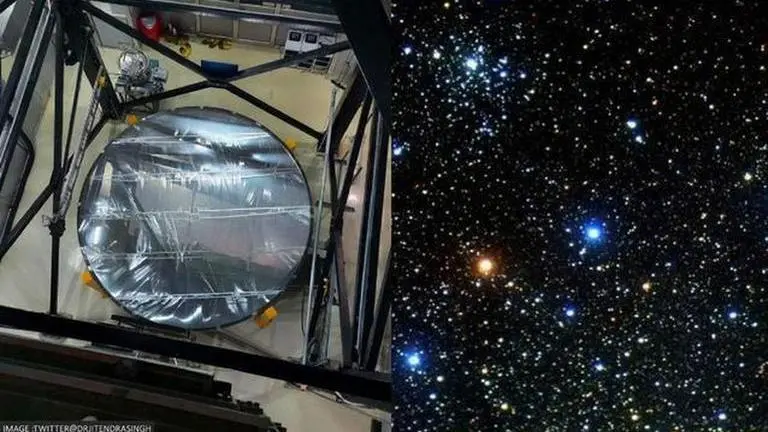Updated 22 March 2023 at 10:54 IST
India inaugurates Asia's largest liquid mirror telescope to unravel mysteries of space
The largest four-metre International Liquid Mirror Telescope in Asia was inaugurated at the Devasthal observatory in Uttarakhand on Tuesday.
- Science News
- 2 min read

Asia's largest four-metre International Liquid Mirror Telescope was inaugurated at the Devasthal observatory in Uttarakhand on Tuesday, marking a landmark moment for India in its pursuits of space exploration. The inauguration of the instrument was done by Union Minister Dr Jitendra Singh, who said that the telescope puts India at the forefront of unraveling mysteries of the universe and is a testament of Prime Minister Narendra Modi's ambition to make progtestaress in the science and astronomy sector.
According to a press release by the Ministry of Science & Technology, the ceremony was also attended by Lt. Gen (Retd.) Gurmeet Singh, the Governor of Uttarakhand. The modernistic telescope has the ability to generate almost 10-15 Gigabytes of data.
"While scanning the strip of the sky every night, the telescope will generate nearly 10-15 Gigabytes of data and the wealth of ILMT generated data will permit the application of Big Data and Artificial Intelligence/Machine Learning (AI/ML) algorithms that will be implemented for classifying the objects observed with the ILMT," Singh said.
The telescope is situated at an altitude of 2450 metres at the observatory, which lies at the campus of Aryabhatta Research Institute of Observational Sciences (ARIES), an autonomous institute under the Department of Science and Technology (DST) in Nainital, a popular tourist city in the state of Uttarakhand.
Advertisement
higher level of capabilities to study the mysteries of the skies and astronomy, and to share the same with the rest of the world”.
— Dr Jitendra Singh (@DrJitendraSingh) March 21, 2023
2/2 pic.twitter.com/iHdvX9gcHl
India gets its first optical survey telescope
According to ARIES, the four-metre telescope is set to explore the night skies. It was collaboratively constructed by a team of researchers belonging from various prominent institutions across the globe, such as the University of British Columbia, the University of Victoria, York University, the Ulugh Beg Astronomical Institute of the Uzbek Academy of Sciences, and Poland's Poznan Observatory.
With a four-metre-diameter rotating mirror, the telescope possesses the ability to deeply survey the sky's trip every night, spotting celestial objects like asteroids and supernovae.The instrument is a vital asset for India, as it is the largest aperture telescope and the first optical survey telescope of the country.
Advertisement
Published By : Deeksha Sharma
Published On: 22 March 2023 at 10:54 IST
